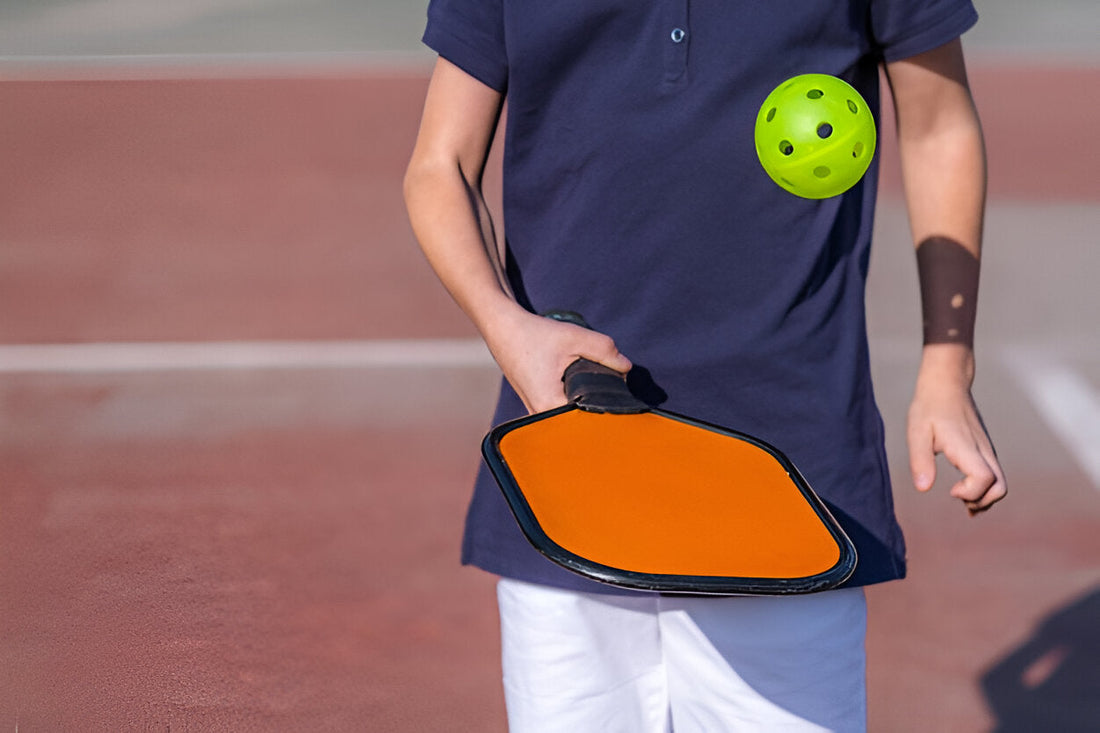Getting the right paddle can make a surprising difference in how you play. While many players focus on grip or texture, the weight of the paddle can affect every swing, block, and point. We’ve seen it firsthand, especially when players start looking for pickleball paddles in Karachi as the heat lingers into September. This time of year can magnify small gear issues, pushing your body harder than you realize.
If your paddle is too heavy, your arm may feel off. Your hits might lose accuracy, and your matches might feel longer than they should. You won’t always notice it right away. Instead, the strain builds up bit by bit until fatigue takes over mid-game. That’s why understanding how a paddle’s weight suits you personally is just as important as how it plays on paper.
How Paddle Weight Affects Your Game
Even a few extra grams can change the way you play. A heavier paddle might help with power, but it can also hold you back in speed and control. That tradeoff isn’t always obvious until you're mid-way through a long rally or chasing down a shot that needed a faster swing.
Heavier paddles tend to slow down your reactions. You may miss some quick returns simply because your arm couldn't keep up. As the match goes on, that lag builds into arm fatigue. Every swing feels heavier than the last, not because you’re getting weaker, but because the paddle keeps demanding more from your body.
Over time, the added pressure travels from your wrist into your elbow and maybe even your shoulder. That’s when it goes beyond just feeling tired. Strain can creep in and affect how you hold your paddle, how you finish a swing, and how long you’re able to stay on the court without discomfort.
For players in Karachi, choosing a lightweight paddle from a trusted store lets you better manage both heat and pace, helping you get through intense rallies typical of the city’s local pickleball matches.
How to Know It's Too Heavy — Subtle Signs to Watch
Some signals are easy to miss until someone points them out. If you feel tired after just one or two sets, or if your hand feels sore after a match, your paddle’s weight might be pushing your limits.
Speed counts in pickleball. If your paddle makes it harder to change directions quickly or react to fast hits, that’s a warning sign. You could be compensating by swinging harder or gripping tighter than you should. That tight grip does more harm than good. It doesn’t fix the weight issue, and it often leads to stiffness or slowdowns over time.
Ask yourself if you ever finish a game and feel like your arm is more tired than the rest of your body. Or if your wrist feels tight or overworked. These small things can get overlooked, especially when you're focused on playing well or trying to push through. But if they keep showing up, your paddle weight may be part of the problem.
Another hint is loss of control during net play or trouble with dinks and drops. If your shots start to feel rushed or shaky, your paddle isn't as manageable as it should be.
Seasonal Heat Adds to the Strain
September in Karachi can still feel plenty hot, especially during matches played in mid-afternoon. That humidity turns each point into more work, and it affects how your gear feels in motion. When the air is warmer and you’re already sweating more than usual, a heavy paddle starts feeling even heavier.
You might start off strong, but by the second or third game, fatigue kicks in faster. Karachi’s late-summer heat builds on itself match after match. Add a bit of extra weight to your paddle, and your body faces more pressure than it should. In these conditions, paddle weight isn’t just a matter of playing style, it becomes a physical factor in how long you can stand up to the heat.
For some players, switching to a lighter paddle during this time of year gives them better control and longer endurance. Cooler evenings might offer a better read on your equipment too. If your swing feels smoother and your strength holds up longer when the heat drops, that’s worth paying attention to.
Most paddles available for pickleball paddles in Karachi come with grip tape and sweat-absorbent handles. This makes it easier to keep control in the city’s late summer heat, while giving you an honest feel for whether the paddle’s weight still feels manageable after several sets.
Signs You're Using a Good-Fit Paddle
When your paddle weight matches your game, you’ll know by how natural everything feels. Your swing flows smoothly from start to finish. You don’t need to grip too hard to keep control, and your recovery after a long match doesn't come with soreness or tightness.
A good-fit paddle should feel like an extension of your hand. It shouldn’t throw off your timing or require extra effort to hit your usual shots. Instead, it should keep up with your moves, no matter how fast or slow. If you’re able to keep your play steady through multiple sets, that’s a strong sign your paddle is working with you—not against you.
Better paddle control usually shows up in your short game. Soft returns, net play, and sharp angles start landing with more precision. When your arm isn’t fighting the paddle, your focus moves from managing your gear to setting up your next shot.
If you notice that you can play back-to-back matches in Karachi’s evening breeze without feeling the urge to stretch out your arm or shake out tightness, that’s the feedback you want from your gear.
What to Do if You Think Your Paddle's Too Heavy
So what happens if your paddle feels like too much? Start with a small check-in. After your next match, notice how your arm feels the next morning. If grips feel harder, or you’re slower to warm up the next day, you might be using something heavier than what suits you.
Talking to someone with paddle experience can help sort this out. That might be a coach, a fellow player, or a gear expert. Ask about trying out different weights and shapes to see how they feel when fatigue sets in.
It helps to join a local demo day or take part in a group match test to see how different paddles compare in Karachi’s weather. Some brands offer demo versions with adjustable weight or extra comfort grips, so you can compare your options in real time as fatigue builds up in the heat.
If you’re shopping, ask questions based not just on specs, but on how your body feels during and after a full match. What seems good in your hand might not hold up after an hour of gameplay. Paying attention to that difference is what leads to smarter gear picks.
Find the Paddle That Works With You, Not Against You
Your paddle should make the game feel smoother, not more demanding. If it's slowing you down or wearing you out before the match ends, it's time to look closer at the weight. Karachi’s late-summer heat adds to the challenge, and the right gear can be the thing that helps you play through it with confidence.
Every player has a different swing style, body type, and endurance level. Start with how your arm and hand feel after a solid session. Then see how your paddle might be working for you, or holding you back. With some awareness and a few adjustments, you can build a setup that supports the kind of game you really want to play.
If you're starting to wonder whether your gear is slowing you down, now’s a great time to take a closer look at your paddle setup. A better fit can lead to longer rallies, reduced soreness, and a smoother overall game—especially in Karachi’s late-summer heat. We've seen just how much small upgrades can matter when players switch to something that fits their pace and style. Check out our range of pickleball paddles in Karachi and find one that plays with you, not against you. And if you’re not sure where to start, Tornado Sports Company is here to help

